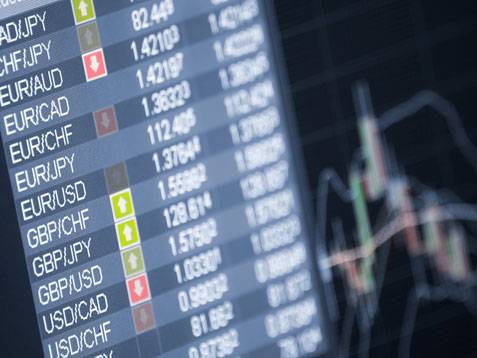US President Donald Trump threatened to impose an additional 10% tariff on any country that supports what he described as “anti-American policies” issued by the BRICS group, a political and diplomatic coordination forum comprising 11 countries.
Trump said via the Truth Social platform on Sunday evening that any country aligning itself with the anti-American policies adopted by BRICS would be subject to an additional 10% tariff, and that there would be no exceptions to this policy.
Trump did not clarify exactly what he meant by “anti-American policies” in this context, but he had previously warned the group against creating a new BRICS currency or supporting any alternative to the “great American dollar.”
At the conclusion of the BRICS summit held in Rio de Janeiro on Monday, Brazilian President Lula da Silva responded to Trump’s threat by saying that the world has changed and that no one wants an emperor, adding that BRICS is a group of countries seeking a new way to organize the world economically, and that this is why some feel uncomfortable with BRICS.
Trump’s threat comes ahead of a planned announcement of tariff agreements
The threat followed Trump’s statement that tariff agreements and letters with a number of countries would be revealed starting at 12:00 PM Eastern Time on Monday, ahead of the temporary tariff freeze deadline set for July 9.
Although countries are encouraged to finalize agreements before July 9, the Trump administration later clarified that the higher tariffs would not take effect before August 1.
Since Monday afternoon, Trump has posted a large number of trade agreement letters on social media.
He has imposed a 25% tariff on imports from South Korea and Japan and announced new tariff rates on twelve other countries.
Before this week, Trump had only announced tariff agreements with three countries: the United Kingdom, China, and Vietnam.
Trump’s threat loomed over the closing of the BRICS summit in Brazil
During the final part of the two-day BRICS summit, Trump’s direct threat dominated the atmosphere, as the attending leaders signed on Sunday a joint statement titled “Strengthening South-South Cooperation for More Inclusive and Sustainable Governance.”
On Monday, the leaders maintained a unified position in response to the threats issued by Trump.
What is the BRICS group?
BRICS was founded in 2001 — originally comprising Brazil, Russia, India, China, and South Africa — as a forum for emerging and developing countries to enhance cooperation on trade, security, and diplomacy.
South Africa was invited to join in 2010, and since then other countries have joined, including Saudi Arabia, Egypt, Iran, Ethiopia, the UAE, and Indonesia, bringing the total number to 11 countries.
BRICS has also established ties with strategic partner countries during last year’s summit, including Belarus, Bolivia, Kazakhstan, Cuba, Malaysia, Thailand, Uganda, Uzbekistan, and Nigeria, and Vietnam was officially announced as the tenth partner country in June.
The group presents a challenge to the unipolar vision of global power that places the United States as the dominant superpower.
Instead, BRICS promotes a multipolar model where various countries collaborate on the global stage.
Some experts believe the era of US dominance over the global system has come to an end and that the shift to a multipolar order has already begun.
BRICS states that it accounts for 24% of global trade and represents 39% of global GDP.
On the first day of this year’s summit, BRICS countries issued a joint statement expressing concern about the “arbitrary increase in tariffs,” without directly naming the United States or Trump.
The statement said that the group is seriously concerned about the escalation of unilateral tariff measures and non-tariff barriers that distort trade and violate WTO rules.
The BRICS countries also emphasized their vision for the future of the global system, stating the importance of the Global South as a driving force for positive change, especially amid growing international challenges, including escalating geopolitical tensions, economic slowdown, rapid technological transformations, rising protectionism, and migration challenges.
How did BRICS leaders respond to Trump’s threat?
Brazil’s president was not the only one to respond to Trump’s public threat.
Kremlin spokesman Dmitry Peskov said on Monday that BRICS does not operate with the intent of undermining other countries.
He added that similar statements have already been seen from President Trump, but it is important to stress that the uniqueness of a group like BRICS lies in the fact that it brings together countries with shared visions for cooperation based on their sovereign interests, and that this cooperation has never been, and will never be, directed against third parties.
China’s Ministry of Foreign Affairs said it opposes the use of tariffs as a tool of pressure.
Chinese Foreign Ministry spokesperson Mao Ning stated that China’s position on increased US tariffs is very clear, and that trade wars have no winners, and economic protectionism leads nowhere.
South Africa’s Ministry of Trade spokesperson Kameel Alli told Reuters that the country is still awaiting an official notification from the United States regarding its trade agreement, but said the talks remain constructive and productive, and reiterated that South Africa is not against America.
Indonesia’s Coordinating Minister for Economic Affairs, Airlangga Hartarto, is scheduled to travel to the United States on Monday following the conclusion of the BRICS summit, with tariffs expected to be at the top of the agenda.
Previous threats from Trump to BRICS.
This is not the first time Trump has threatened the BRICS group.
In November, following his presidential election victory, he threatened to impose 100% tariffs on BRICS countries if they chose to “move away” from the US dollar.
At the time, Trump said that the idea of BRICS countries trying to abandon the dollar while the US does nothing is over, and that the US demands a commitment from these countries not to create a new BRICS currency or support any alternative to the great American dollar, otherwise they should expect 100% tariffs and say goodbye to the amazing American market.


